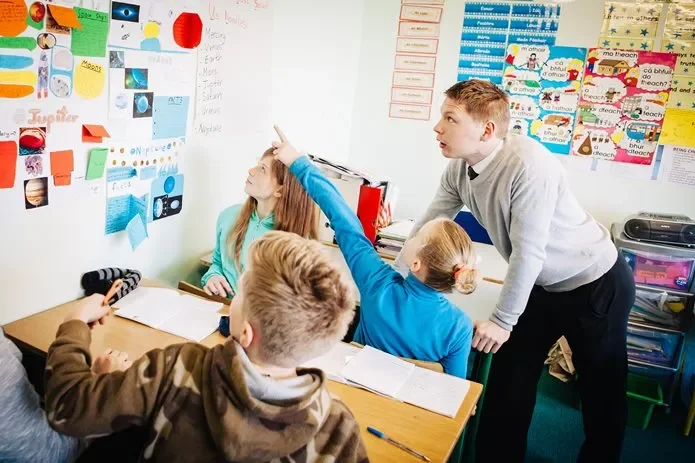

Health researchers find children are not meeting fine motor skills milestones
Health researchers at Dublin City University’s School of Health and Human Performance have found that the ability of children to master tasks such as drawing shapes, fixing laces and putting pegs into a pegboard is not meeting fine motor skills developmental milestones.
It showed that 36% of the surveyed children aged between 11-12 years of age (6th class) did not meet the expected level of proficiency in fine motor skills for their age.
13% of children in second class did not match their respective milestone while 14% of fourth class children also exhibited difficulties.
Led by Dr Johann Issartel and David Gaul, the project analysed 253 children (139 males/114 females) aged 6-12 from five primary schools in Dublin.
The findings were published in the Journal Human Movement Science.
Fine motor skills is defined as the use of small muscles in movements to carry out tasks such as dressing, feeding, playing and fixing buttons.
It is an essential component of everyday life. Children with fine motor skills have been found to demonstrate higher academic achievements and an earlier development of reading.
Commenting on the findings, Dr Johann Issartel said:
“Not only are children’s physical activity participation and motor skill proficiency levels dropping; children are not developing fine motor skills such as drawing and picking up small objects (e.g coins) like they should.
This impacts academic achievement and quality of life both now and in the future. We need to think about how we can tackle this emerging problem before they have long term consequences.”
Researchers have attributed the proficiency challenges experienced by older children to technological developments in their immediate environment which has an impact on the opportunities available to engage in fine motor skill movements.
In addition, the lack of participation in physical activities such as running, jumping and catching a ball which requires the use of gross motor skills, can also impact on the development of fine motor skills in a child.
Overall, 2nd and 4th class children exhibited greater proficiency levels, when the performance is considered at their age level, in comparison to their 6th class counterparts for their age.
Researchers added that while children do progress overtime it is not at the expected rate.
It was also highlighted that a longitudinal study on the impact of technology and technological tools on fine motor skills in children was required in order to have an overall assessment of the influence of technology.
